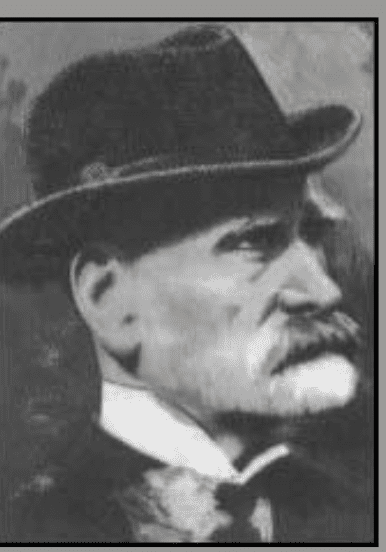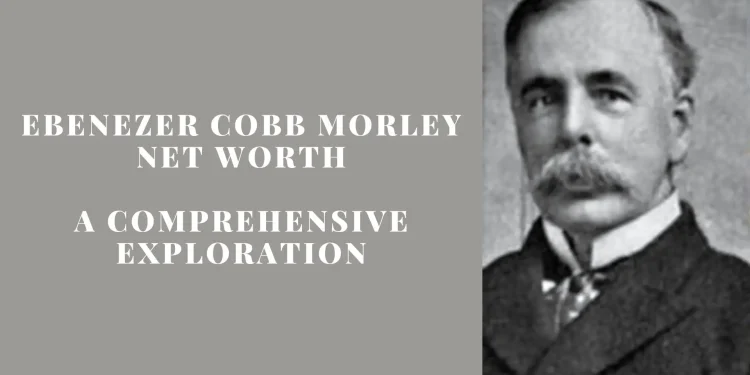Ebenezer Cobb Morley is widely recognized as the founding father of modern football. Born in Hull, England, in 1831, he played a significant role in establishing the Football Association (FA) and drafting its original laws. His contributions have shaped the game we know today. However, limited information regarding his net worth is available due to the historical context. This article will explore various aspects of Morley’s life, his financial background, and the impact of his work in football. We will answer key questions about his legacy and influence on the sport.
Morley’s most significant contribution to football came in 1863 when he helped establish the Football Association (FA). He wrote a letter to Bell’s Life newspaper proposing a governing body for football. This led to a meeting at the Freemason’s Tavern in London on October 26, 1863. At this meeting, representatives from various clubs gathered to discuss the game’s rules. Morley was elected as the first Honorary Secretary of the FA and played a vital role in drafting its original laws. We will cover everything at talkativefox.
Early Life and Education
Ebenezer Cobb Morley was born in Hull, England, on August 16, 1831. He was raised in a religious family; his father was a Congregational minister. Morley attended local schools before qualifying as a solicitor in 1854. After qualifying, he moved to London to practice law. His background provided him with a solid education and skills that would later aid his work in sports governance.
What Were the Original Laws of Football?
Morley drafted the thirteen original laws of football at his home in Barnes. These laws included rules about handling the ball and player conduct during matches. For example, one law stated that “no player shall carry the ball.” His work laid the foundation for how football is played today. The laws were agreed upon at subsequent meetings and became essential guidelines for all clubs.
H2: What Impact Did Morley Have on Football Culture?

After establishing the FA, Morley continued to be involved in football administration. He served as Honorary Secretary until 1866 and became President from 1867 to 1874.
During this time, he oversaw many developments within the sport, including organizing matches and promoting competitions like the FA Cup.
In addition to football, Morley was an avid sportsman involved in rowing and hunting. He founded the Barnes and Mortlake Regatta and participated in local rowing clubs.
His passion for sports led him to build facilities for athletes and promote various sporting events in his community. Morley married Mary Ann Smith in 1856, with whom he had several children. He balanced his professional career as a solicitor and his dedication to sports administration. His legacy continues through various honors, recognizing his contributions to football history.
H2: How Did Morley’s Work Influence Future Generations?
Morley’s work laid the groundwork for modern football governance. His principles of fair play and standardized rules are still relevant today. Many organizations worldwide look up to the FA as a model for structuring their sports associations.
Overcoming Obstacles
Throughout his career, Morley faced challenges such as resistance from clubs reluctant to adopt new rules. There were also debates over specific regulations that could affect gameplay. However, he remained persistent in advocating for standardized rules that would benefit all players.
How Is Morley’s Legacy Celebrated Today?
Today, various memorials and events celebrate Ebenezer Cobb Morley’s contributions. The FA honors him as one of its founding figures during anniversaries and special occasions related to football history. Also, a Google Doodle was dedicated to him on his 187th birthday anniversary. Additionally, educational programs highlight his role in shaping modern sports governance.
Financial Background
Due to limited historical financial records, determining Ebenezer Cobb Morley’s net worth is challenging. As a solicitor and sports administrator during the 19th century, he likely earned a modest income relative to today’s standards. However, his lasting impact on football far outweighs any financial measure of success.
Major Contributions
Ebenezer Cobb Morley is widely recognized as the founding father of modern football. One of his key achievements was drafting the original laws of the game in 1863. These laws standardized how football was played, making it safer and more organized. Morley was also the first Honorary Secretary of the Football Association (FA), a position he held until 1866.
During this time, he helped establish the FA as England’s governing body for football. Another significant achievement was his role in creating the FA Cup, which began in 1871 and is still played today. The FA Cup is considered the oldest football competition in the world. Morley’s leadership and vision transformed football into a structured sport, allowing it to grow in popularity across England and beyond.
How did Ebenezer Cobb Morley contribute to the establishment of the FA Cup?
Ebenezer Cobb Morley established the FA Cup, which began in 1871. After helping to form the Football Association, he recognized the need for a national competition to promote football. Morley proposed the idea of a knockout tournament that would include teams from various clubs across England. This idea was well-received, leading to the first FA Cup competition in 1872.
Morley presented the trophy to the winning team, Wanderers FC, marking a significant moment in football history. The FA Cup has since become an iconic event, showcasing talent from both professional and amateur clubs. Morley’s vision for a competitive tournament helped elevate football’s status as a major sport in England.
What other sports did Ebenezer Cobb Morley participate in?
In addition to his contributions to football, Ebenezer Cobb Morley was involved in several other sports. He was an avid oarsman and participated actively in rowing competitions. He served as Honorary Secretary for the Barnes and Mortlake Regatta from 1862 to 1870, promoting rowing events in his community. His passion for sports also extended to hunting; he enjoyed participating in hunting activities during his leisure time. Morley’s diverse interests in sports showcased his commitment to promoting physical activity and competition beyond just football.
How did Ebenezer Cobb Morley’s profession as a solicitor influence his sports career?
Ebenezer Cobb Morley’s profession as a solicitor greatly influenced his sports career and contributions to football. His legal training provided him with skills essential for drafting rules and regulations for the game.
As Honorary Secretary of the FA, he applied his law knowledge to create standardized rules governing football matches. This legal expertise helped him navigate complex discussions among clubs regarding regulations and fair play. Additionally, his position as a solicitor allowed him to network with influential individuals, facilitating the growth of football organizations like the FA.
What was the significance of the 1863 meeting at the Freemason’s Tavern?
The meeting at Freemason’s Tavern on October 26, 1863, was significant because it marked the founding of the Football Association (FA). Ebenezer Cobb Morley wrote a letter proposing a governing body for football, leading to this historic gathering. Representatives from various clubs attended to discuss creating standardized rules for the game. During this meeting, Morley was elected as the first Honorary Secretary of the FA.
The decisions made at this meeting laid the groundwork for modern football governance. Establishing common rules helped unify different playing styles and contributed to football’s rapid growth across England and eventually worldwide.
Conclusion
Ebenezer Cobb Morley’s contributions have left an indelible mark on football history. From drafting the original laws of the game to establishing the Football Association, his legacy continues to influence modern sports governance today. While details about his net worth remain unclear, his achievements speak volumes about his dedication and passion for football. Understanding his life helps us appreciate how far the sport has come since its early days.

